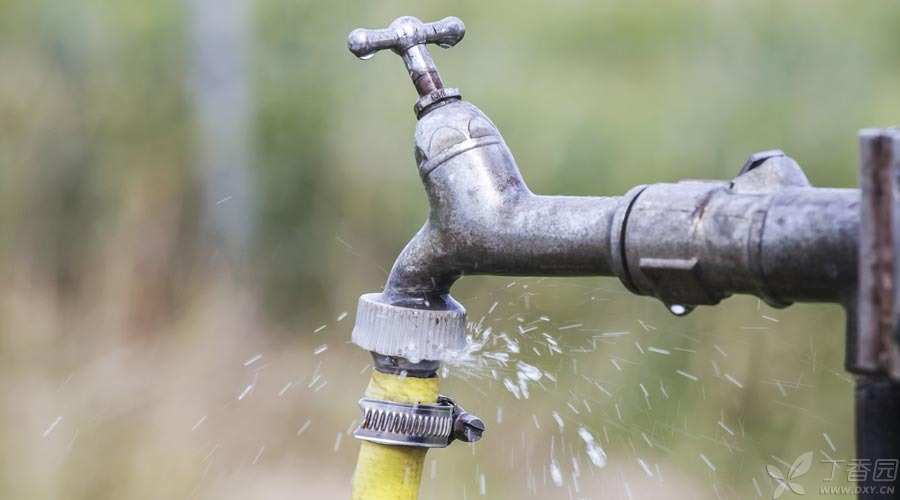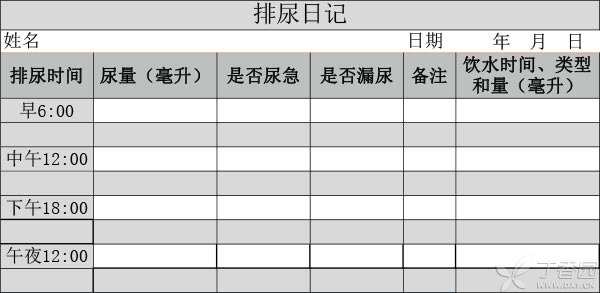
Me: [Mom, haven’t you and my father always wanted to visit Taiwan, why haven’t we? ]
My mother: [You can’t go with us, so your father and I want to call your aunt’s family. However, your aunt is not physically convenient to travel far away, which will delay you.]
Me: [What happened to my aunt? Why is it not convenient to travel far away? ]
My mother: [You are a doctor, It doesn’t matter if I tell you, She can’t hold her urine now, For several years. She used to pee when sneezing or coughing, but now she can wet her pants when smiling or walking. She always feels that she smells of urine, and she has to be padded everywhere, and she feels very dirty. It’s okay to string doors in the city, so it’s not convenient to travel far away, so she doesn’t want to travel.]
Me: [Have you ever been to the hospital? ]
My mother: [No, she felt that she was like this when she was a little older, and all the neighbors around her were like this, so she didn’t go to see it.]
Me: [Ask me, our urology department is in charge of this matter! ]
My mother: [How embarrassed is that? She thinks you are usually busy and a child. It is inappropriate to tell you this.]
Piss your pants. How big is it?
Do you think it’s just pissing your pants, how much can it be?
You’re wrong.
For patients, urinating their pants may bring them much more troubles than you think. Patients’ life and work are seriously dragged down, they dare not laugh, dare not exercise violently, dare not travel far away… Even before sneezing or coughing, they have to worry about whether they will suddenly leak some urine for half a day.
What is more troublesome is that many patients do not think this is a disease, or are ashamed to speak or seek medical treatment because of their face, allowing the disease to become more and more serious and arbitrarily affect their lives.
This is a disease in which involuntary urine leaks from the outer orifice of the urethra when abdominal pressure increases such as sneezing, coughing or exercise. To put it more directly, there is something wrong with the [valve] that manages urination. As soon as the pressure in the bladder is high, urine will flow out by itself.

Realizing the seriousness, what should I do?
Can this disease be treated without injection, medicine and hospitalization? Find out early and see a urologist early, maybe he will tell you so.
Step 1 Train yourself at home
There is a highly recommended simple, easy and effective non-surgical treatment method, which is pelvic floor muscle training, also known as levator anus training:
- Continue to tighten the anus upward for 2-6 seconds, then relax for 2-6 seconds; This is repeated 10-15 times as a group, and 3-8 groups are trained every day. This lasted for more than 8 weeks.
2. Go to the hospital and ask a doctor for help.
If the pelvic floor muscle training effect for a period of time is not particularly good and the symptoms are more serious, it is recommended to go to the urological department of the hospital.
(1) Record urination diary before going
If the patient can bring a [urination diary] with him for 3 consecutive days when he goes to the hospital, it will be of great help to the doctor in making diagnosis.
The urination diary looks like the following table. If you don’t remember enough, you can add a few more lines. Among them:
- Urination is mainly your own feeling. Leakage of urine is a condition that cannot be suppressed. Remarks can be recorded including cough, exercise, taking medicine, etc. Drinking water types include water, soup, porridge, milk, tea, coffee, carbonated drinks, wine, etc. Urine volume can be estimated, or if conditions permit, it is best to be able to make simple measurement. If urine pads are used, it can also be recorded as how many pieces a day.

Urination diary sample table
(2) When you arrive at the hospital, tell the doctor about the situation.
In addition to the urination diary brought by the patient, the doctor should also be told including his age, menstruation and fertility, other chronic diseases, including chronic lung diseases, diabetes, etc., recently taking what medicine, etc. The doctor will diagnose according to the medical history and do some examinations when necessary.
Although it is not difficult to diagnose this problem, sometimes some more complicated examinations will be carried out, including urodynamic examination, cystoscopy and imaging examination such as ultrasound, contrast examination, CT, etc., mainly for fear of some bad problems, especially for older patients.
(3) How will the doctor treat the diagnosis?
Usually doctors will first treat it through non-surgical methods, including therapeutic instruments placed in the vagina or rectum, oral administration of some drugs, local use of estrogen in the vagina, etc.
If the above non-surgical treatment effect is not good, surgical treatment should be considered. The operation is not large and the effect is good.
The incidence rate is high and the consultation rate is low.
My aunt thinks that the middle-aged and elderly women around her have this problem more or less. Yes, female urinary incontinence is a common disease, with a global prevalence rate of nearly 50%. The prevalence rate of Chinese women is basically the same as this, and about half of them are stress urinary incontinence discussed here.
Almost one in four middle-aged and elderly women is troubled by the disease.
However, due to problems such as face and ignorance of the disease, the rate of seeing doctors for the disease is very low.
You can compare and see if you have the following risk factors:
- Age: The high incidence age is 45 ~ 55 years old. The correlation between age and urinary incontinence may be related to pelvic floor relaxation, estrogen reduction and urethral sphincter degeneration with age. Common diseases in the elderly, such as chronic lung diseases and diabetes, can also promote the progress of urinary incontinence. Fertility: The incidence of urinary incontinence is relatively high in the cases of high number of births, too high age of childbirth and vaginal delivery. Pelvic organ prolapse: bladder, uterus, rectum, etc. Obesity: The probability of stress urinary incontinence in obese women is significantly increased. Heredity: If the mother has this problem, the prevalence rate of the daughter may be higher than that of the average person.
No matter what’s disease, early detection and treatment are good. It would be better if we could have a certain understanding of the relevant risk factors and thus reduce or even avoid the occurrence of diseases.
